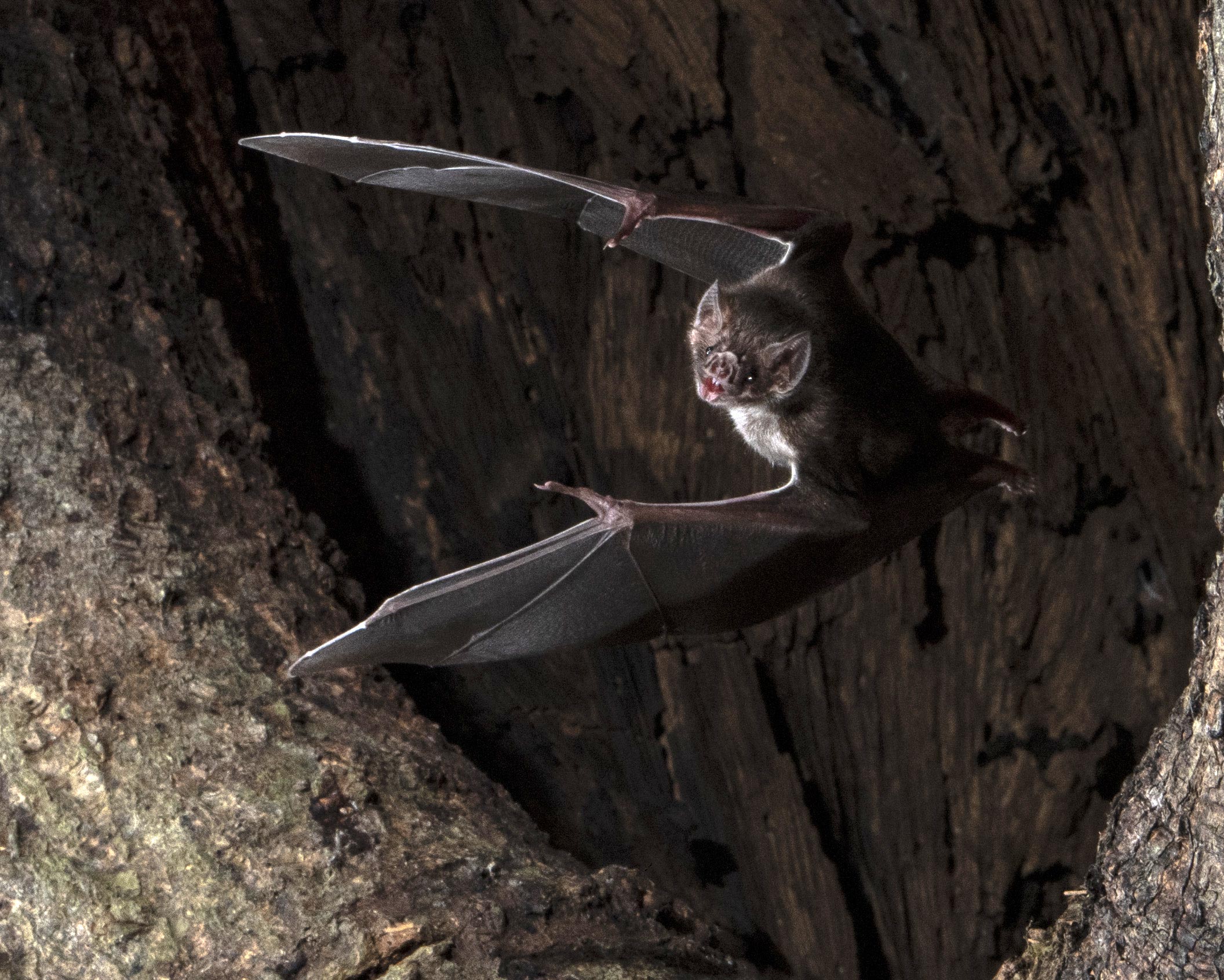A new paper in Behavioral Ecology finds that wild vampire bats that are sick spend less time around others in their community, slowing the spread of disease. The research team had previously observed this behavior in the laboratory and confirmed it in a field test in the wild. Photo credit: Sherri and Brock Fenton / Behavioral Ecology
A new paper in Behavioral ecology, published by Oxford University Press, finds that wild vampire bats that are sick spend less time around others in their community, slowing the spread of disease. The research team had previously observed this behavior in the laboratory and confirmed it in a field test in the wild.
When a pathogen spreads across a population, changes in social behavior can alter the spread of the disease. Transmission rates can increase when parasites change host behavior or decrease when healthy individuals avoid sick ones. With certain social insects, the sick can voluntarily self-isolate or be excluded from their colonial colleagues. A simpler mechanism that causes decreased transmission is that infected animals often exhibit disease behaviors that include increased lethargy and sleep, as well as decreased exercise and sociality. This disease-related social distancing does not require collaboration from others and is likely to be common across species.
Researchers conducted a field test here to use a dynamic social network built from high-resolution proximity data to study how disease behavior affects relationships over time. After the researchers captured 31 adult female vampire bats from a roost in a hollow tree in Lamanai, Belize, they simulated “sick” bats by injecting a random half of the bats with the immunosupplicating substance lipopolysaccharide, while the control group received injections of saline.
Over the next three days, the researchers taped proximity sensors to the bats, dropped them back in their hollow tree, and tracked changes in the associations of all 16 “sick” bats and 15 control bats under natural conditions over time.
Compared to control bats, “sick” bats spent with fewer group members, spent less time with others, and were less socially connected with healthy group members when both direct and indirect connections were considered. During the six hours of the treatment period, a “sick” bat was associated with an average of four fewer employees than a control bat. A control bat had, on average, a 49% chance of connecting with each control bat, but only a 35% chance of connecting with each “sick” bat. During the treatment period, “sick” bats spent 25 minutes less working with each partner. These differences decreased with the duration of treatment and when the bats slept or searched outside the roost.
“The sensors gave us an amazing new window on how the social behavior of these bats changed from hour to hour and even minute to minute throughout the day and night, even when hidden in the darkness of a hollow tree.” said the study’s lead author, Simon Ripperger. “We went from collecting data every day to every few seconds.”
Reference: “Tracking the effects of disease on social encounters through continuous proximity detection in wild vampire bats”, October 27, 2020, Behavioral ecology.
DOI: 10.1093 / beheco / araa111
Funding: German Research Foundation (research unit FOR-1508), National Geographic Society (research grant WW-057R-17).



